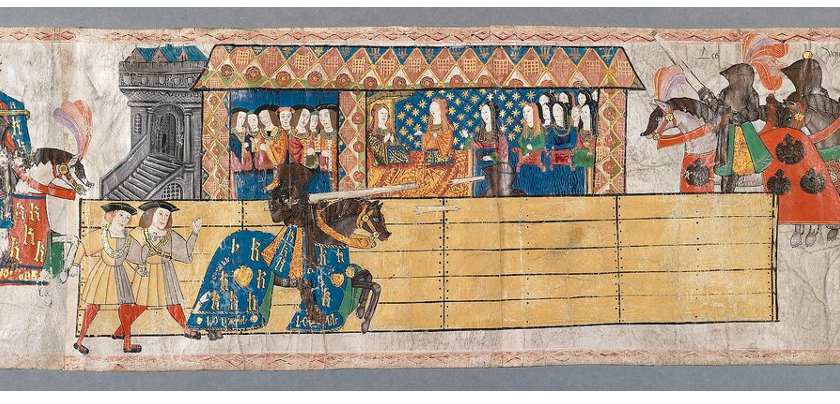I realise this question could apply to several of Henry’s wives, but right now I’m thinking about Katherine of Aragon. If she had had a son who lived, would her marriage to Henry have survive ‘til death us do part’?
Ambassadorial letters reveal that Katherine bore at least three sons, but tragically, two of them were stillborn. The other one was Henry of Cornwall, who was born on the 1st January 1511, but died on the 22nd of February, to the grief of his parents and his country.
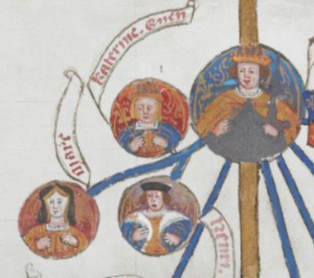
If young Henry had lived, would that have protected his parents’ marriage? Personally, I don’t think it necessarily would have.
We know that whilst Henry needed a son and heir, he certainly wanted more than one. When Jane Seymour died, the celebration over the birth of the longed-for son quickly turned to grief. Personally, I think Henry did genuinely mourn the death of Jane (whether that had something to do with the shortness of their relationship is another matter), but there was also another concern thrown into the mix: finally he had a wife who could produce a son, but she had died before producing any more. The search for a fourth wife was not just the search for a new object of desire, but hopefully for a new mother to a second son.
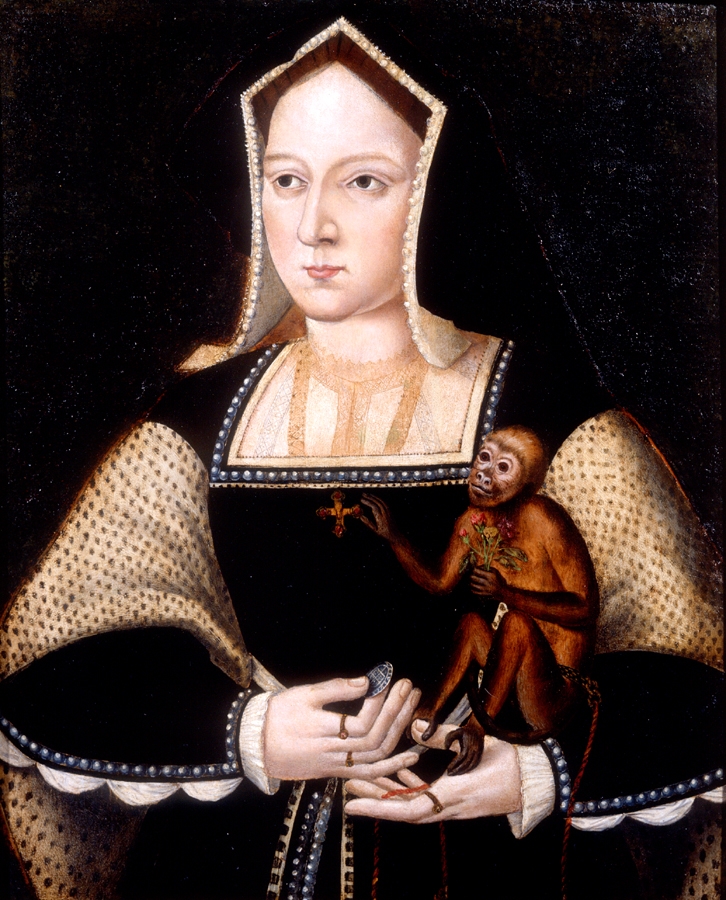
Henry knew all too well the dangers of only having one son; he himself was the second son who was never supposed to inherit. His older brother, Arthur, the Prince of Wales, the heir, the intended future king, died at the age of 15. Whilst his parents were personally heartbroken by the loss of their son, it was not the political disaster it could have been; upon hearing the news, Elizabeth of York pointed out to Henry VII, ‘how that God had left him yet a fair prince, two fair princesses…the King thanked her for her good comfort.’ From the point of view of the Crown, whilst the heir was lost, they still had their spare.
The heir and the spare; it is a phrase that has been thrown around a lot in recent months. However in a kingdom that still remembered the turbulent days of the so-called Wars of the Roses, it was of vital importance to have a secure lineage that no-one could dispute.
Concern for the welfare of his country after his death is what motivated a lot of Henry’s decisions throughout his life. There were still many noblemen with a significant amount of Plantagenet blood who could pose a serious threat in the event of uncertainty in the succession. In a country whose only attempt at female succession had led to 18 years of civil war, Henry’s concerns and motives were very understandable, and indeed shared by most people. This is why he fought so hard to have a son, and, as a side note, why even the hint of suspicion of treason by Plantagenet descendants was enough to seal their fate.
So whilst King Henry would have watched his son and heir grow with pride, he would have still had serious concerns about the lack of a second son. He himself was a second son who was never supposed to inherit. And looking back, he could have noticed a pattern; first-born sons had not inherited their fathers’ thrones in some time. Richard III’s son had died aged 10; both Edward IV’s sons had disappeared after their uncle’s usurpation; Henry VI’s 17 year old son had been killed during the Battle of Tewkesbury. In fact, by the time young Henry of Cornwall was born in 1511, it had been almost a century since the last uncontested inheritance of the throne from father to son: Henry V died in 1422, leaving his kingdoms to the infant Henry VI.
So, returning to our hypothetical, what would King Henry have done if Henry of Cornwall had lived, but was the only son of himself and Katherine of Aragon? I think he would still have eventually sought to remarry. It would have been even more difficult though.
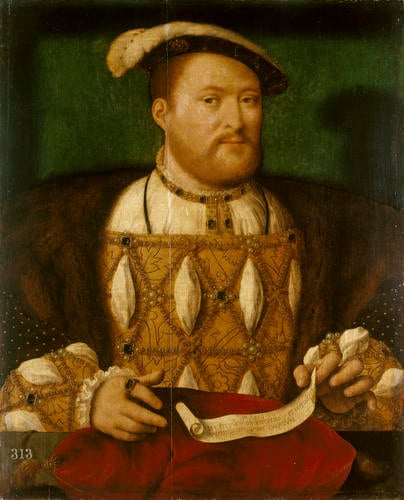
When Henry initially sought an annulment of his marriage to Katherine of Aragon, it was done with the intention of preserving Mary’s legitimacy. There was substantial precedent that the children of a union that was found to be invalid, but that the parents had entered into in good faith, were still considered legitimate. An example of this was the case Eleanor of Aquitaine and Louis VII of France; though their marriage was dissolved on the grounds of consanguinity (but in reality due to the lack of a son), because they entered into the marriage in good faith, their daughters remained legitimate. If Katherine of Aragon had not resisted the annulment, their daughter would have remained fully legitimate as Princess Mary, secure in her place in the succession (after any future sons) and in her father’s heart. But because Katherine contested the annulment, the ‘good faith’ article had to be set aside; clearly her obstinacy was because she knew that she had been in the wrong by sleeping with Arthur and then marrying Henry, therefore she had not entered into the marriage in good faith and her daughter was not legitimate.
Henry did not want Mary to inherit the throne anyway, so he was willing to sacrifice his daughter’s status in order to have the son and heir he believed his country needed.
But of course, if there was already a son and heir, Henry couldn’t risk their legitimacy. And Katherine would have been in an even stronger position to contest the annulment as the mother of a son. Henry also would not have been able to use the wording of Leviticus 20:21 ‘If a man shall take his brother’s wife, it is an unclean thing…they shall be childless.’ Henry argued that only having a daughter was, for all practical intents and purposes for a King, the same as being childless. Not so if there was a male heir to protect.
Henry could still have used Leviticus to make the consanguinity argument, but he wouldn’t have had the evidence of ‘childlessness’ to use as proof of the invalidity of the papal dispensation which allowed Henry and Katherine’s marriage in the first place.
Of course, we don’t know how the timing would have been affected by the survival of Henry of Cornwall; maybe pursuing Anne Boleyn would still have been the catalyst, but it would perhaps have taken Henry longer to reach the conclusion to marry her. Perhaps the existence of a son would have meant that Anne was more willing to be a mere mistress; perhaps her resistance would have made Henry back off entirely. I still think Henry would have eventually reached the conclusion that he needed another son though, but it may have been a different woman, perhaps even a French princess, who he sought to marry. And importantly, it almost certainly would have taken longer to put together the evidence for the annulment due to the extreme delicacy of the situation. This could have made all the difference.
I’ve discussed before the fact that it was very much the timing that worked against Henry in his petition to the Pope for an annulment. There are many instances through this period where popes annulled royal or noble marriages. Usually all it took was some money changing hands to secure a fairly swift, favourable outcome. The reason Henry ran into trouble at the time was because the Sack of Rome resulted in Pope Clement VII being unable and unwilling to oppose Katherine’s nephew, Charles V.
If Henry had petitioned for an annulment just a few years earlier or later, it is likely that the Pope would have easily granted the annulment, with little concern for the disgruntlement of Katherine.
History in this instance would have been dramatically altered; even after his break from Rome, Henry remained religiously conservative, so without the impetus of frustrated annulment proceedings, it is unlikely that the English Reformation would have occurred during his reign. It may still have eventually reached English shores, as the Reformation movement was sweeping across Europe throughout the 16th century, but it would have looked very different.
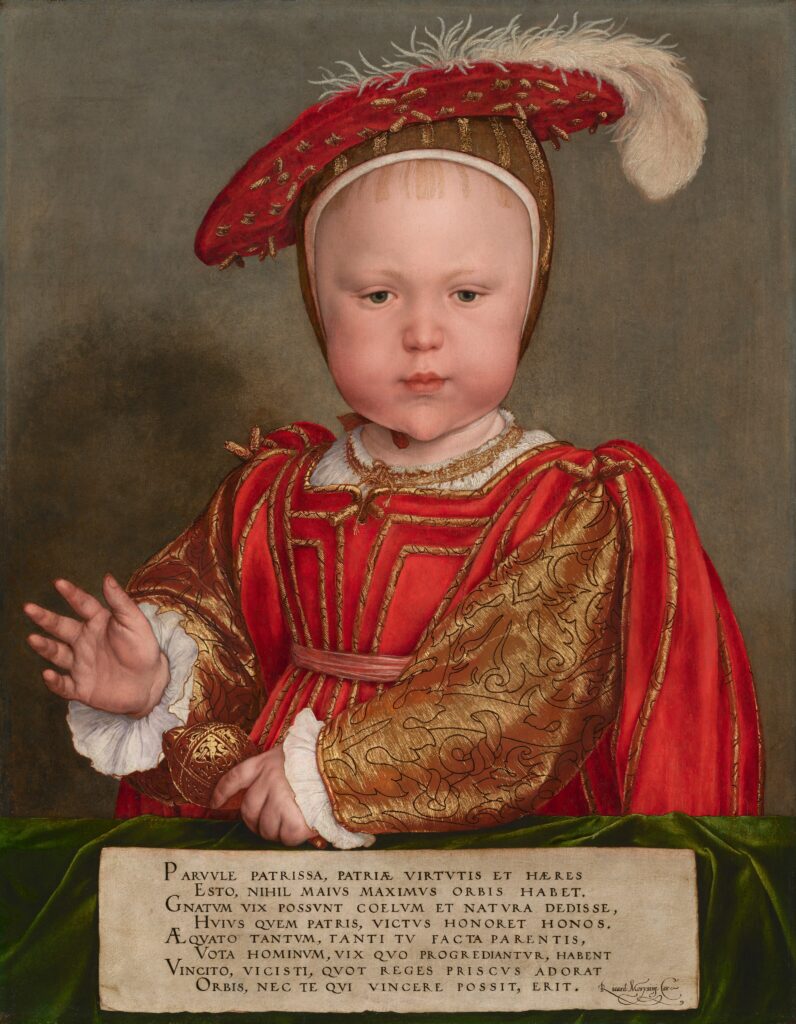
Whether Henry would have succeeded in having another son is a different question; perhaps the rest of Henry’s life would have proceeded as we know it: Anne giving birth to Elizabeth, failing to give a son; successfully giving young Henry a brother, Edward, by Jane Seymour who died shortly after giving birth to Edward, and so forth. Or, as I mentioned before, perhaps Henry would have made another political marriage, perhaps with a French princess, or a Portuguese one. Perhaps he may have even smoothed his way with Charles V by agreeing to marry another Spanish princess, one of his nieces perhaps. Whether such a marriage would give him a son–or two, or more–or not, it is impossible to speculate.
Of course, the timing may also have been similar, and Henry may still have been blocked by the Pope. Whether he would have abided by the Pope in a scenario where he risked the legitimacy of his heir is up for debate. But regardless of how the subsequent history would have played out, I do believe that given the recent history of civil war, and Henry’s own family history, he would have eventually sought to annul his marriage with Katherine.
In reality, after the birth of Edward and the death of Jane Seymour, Henry continued to seek and hope for another son. This continued through to his marriage to Catherine Howard, who may have had a pregnancy that ended in a stillbirth during the first part of her relationship with Henry. Arguably, by the time he married Catherine Parr, he was too ill to have much hope of bearing a new son. I think it was at this point that Henry realised that he would likely die as the father of only one living son, passing the Third Act of Succession in July 1543, in which he conceded that Mary and Elizabeth would be his subsequent heirs in the event that anything happened to Edward.
Despite his personal fears, (and in spite of the Lady Jane Grey hiccup) Mary and Elizabeth both had smooth successions to the throne. I think if Henry had known that a daughter could securely inherit his throne, his reign would have been very different. However, without this foresight, Henry’s desperate belief in the need for a male heir drove him to extremes.
Unfortunately for Katherine of Aragon, even if young Henry of Cornwall had lived to adulthood, Henry would have still been driven to seek a new wife and the chance of more sons.
Top image: A joust in honour of the birth of Henry of Cornwall. Katherine is watching Henry jousting in her honour. Westminster Tournament Roll, c.1511

